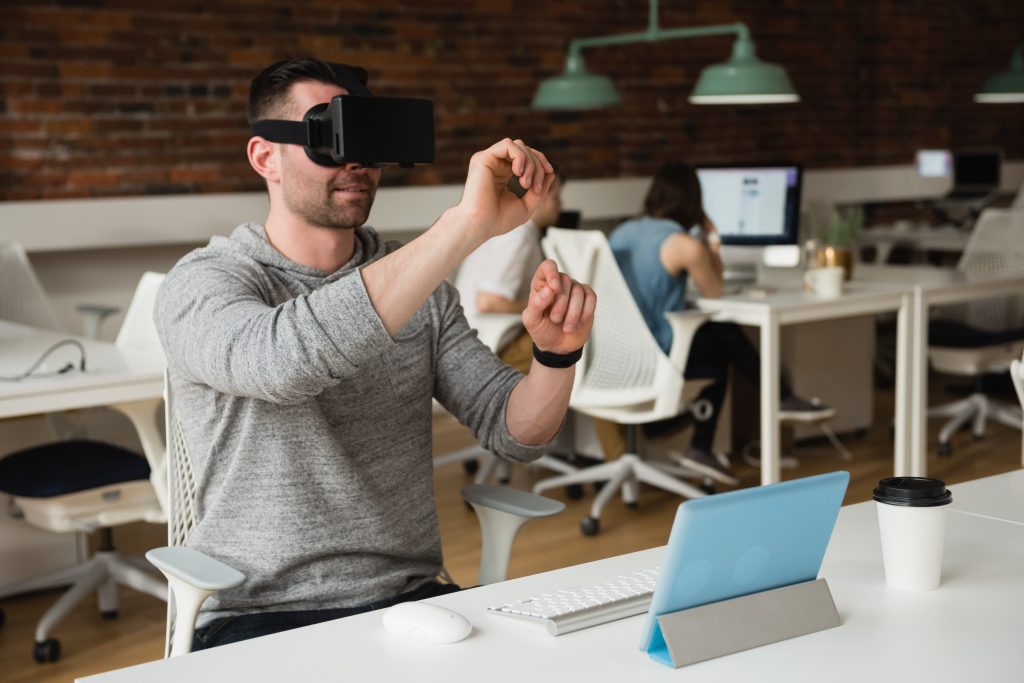
The Ethics of Virtual Reality
Virtual Reality (VR) is a rapidly growing technology that has transformed the way we interact with the digital world. With the ability to simulate real-world environments and experiences, VR has immense potential in various fields, such as education, entertainment, and healthcare. However, as with any new technology, there are ethical considerations that must be taken into account. In this blog post, we’ll explore the ethical implications of VR and what we can do to ensure its responsible use.
Virtual Reality and Its Privacy Concerns
Virtual Reality requires users to wear headsets, which can collect a vast amount of data on their physical movements, biometric data, and even their surroundings. This data can be used to improve the VR experience, but it can also be used to track and monitor users’ behavior, which raises privacy concerns. For instance, companies could use this data to collect information on users’ preferences, habits, and even personal information, which could be sold to third-party advertisers.
To address these concerns, it is essential to establish clear guidelines for data collection and user privacy in VR. Companies should be transparent about the types of data they collect and how it is used, and users should have the option to opt out of data collection if they choose to do so. Additionally, companies should ensure that their VR systems comply with established data protection laws, such as GDPR or CCPA.
Addiction and Overuse
One of the most significant concerns with VR is the potential for addiction and overuse. The immersive nature of VR can lead users to spend long periods in virtual environments, which can lead to a detachment from reality and negative consequences, such as decreased social interactions and physical health problems.
To address these concerns, companies should design VR experiences that encourage healthy usage and limit the risk of addiction. For instance, companies can include built-in features that encourage users to take regular breaks, limit the amount of time users can spend in VR, and provide educational materials on the potential risks of overuse.
Representation and Inclusion
Virtual Reality has the potential to create unique experiences that can be difficult or impossible to replicate in the physical world. However, there are concerns about representation and inclusion in VR. For instance, VR experiences could perpetuate stereotypes or exclude certain groups of people, such as those with disabilities or from marginalized communities.
To address these concerns, companies should prioritize diversity and inclusion in their VR experiences. This means designing experiences that are accessible to a wide range of people and ensuring that the content is culturally sensitive and respectful. Companies can also work with experts in diversity and inclusion to ensure that their VR experiences are inclusive and representative.
Virtual Crime and Harassment
Virtual Reality has the potential to create unique social environments where users can interact with each other in new and exciting ways. However, this also creates the potential for virtual crime and harassment. As an example, virtual harassment or bullying could expose users to negative experiences that may lead to consequences in the real world.
To address these concerns, companies should establish clear guidelines for acceptable behavior in virtual environments and provide tools for reporting and addressing virtual crimes and harassment. Companies can also work with experts in cybersecurity and virtual crime to develop effective strategies for addressing these issues.
As Webikondri, we develop many products and services in accordance with the wishes of our customers within the scope of Virtual Reality. We believe that it is one of our biggest responsibilities to take care of business and usage ethics while doing our job.
Virtual Reality is a powerful technology with immense potential, but it also raises ethical concerns that must be addressed. Companies must take responsibility for the ethical implications of their VR systems and ensure that they are designed and used in a responsible and ethical manner. This means prioritizing user privacy, promoting healthy usage, prioritizing diversity and inclusion, and addressing virtual crime and harassment. By doing so, we can ensure that Virtual Reality is a force for good and a tool for positive change. You can contact us to explore different concepts of the Virtual Reality world through Webikondri.




